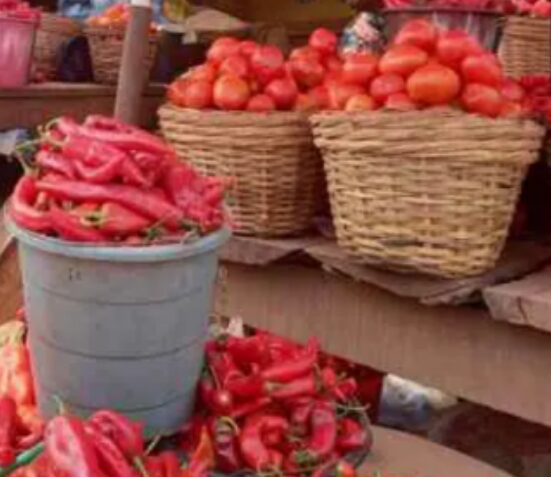Some women said they have opted for carrots and other sauces for their stews as the cost of tomatoes continues to soar in Nigeria.
Some residents in Lagos, who spoke to Prime Business Africa, recently said they have resorted to using carrots to augment tomatoes for their stews because of the high cost of the vegetable fruit.
Join our WhatsApp ChannelRice is a popular staple food eaten by most Nigerians on a regular basis often with vegetable stew prepared with tomato paste. Aside from stew for rice, tomato, which according to nutrition experts is a source of important nutrients like vitamin C and potassium, is also used in some other Nigerian delicacies such as egg sauce eaten with yam or potato, and porridge. Some equally prepare it as fruit juice and consume for some health benefits.
“Since the cost of tomato started rising, I have resorted to mixing carrot with tomato to increase the quantity of my stew as carrot is more affordable now. I and my children like eating rice at least twice a week. So, I make it a regular dish in my house,” said Mrs Oluchi Odu, a mother of three.
READ ALSO: IMF Sees Soaring Food Prices In Nigeria, Others Till 2023
She also disclosed that many people also use palm fruit known as Banga soup as an alternative tomato stew.
Miss JaneFrancis Okolie, a school teacher in Ilasamaja, said people no longer bother much about using fresh tomatoes all through in their stews since the cost hit the roof.
While describing how she prepares the delicacy, Miss Okolie said she has gotten used to it for some months now as she doesn’t like cooking stew with packaged tomato paste whose prices have slightly gone up as well.
She expressed concern that with people switching to carrots, the price of the vegetable fruit might rise as a result of increasing demand.
“But the problem is that there will be more demand for it and the price will shoot up soon,” she said.
READ ALSO: Post-petrol Subsidy: 4 Most Affected Economic Sectors
During a Prime Business Africa survey at a market in Ajao Estate, Isolo in Lagos, a tomato seller Haruna Mohammed, said that apart from tomatoes, the cost of pepper has also gone up. He said they currently buy a big basket of tomatoes at N100,000, while that of pepper is N50,000.
The price of a small plastic bucket of fresh tomatoes in the market is between N7,000 and N8,000 while half of it is between N3,500 and N4,000 depending on the sizes and quality.
Prime Business Africa’s investigation shows that two months ago, a big basket of fresh tomatoes at Mile 12 Market sold for between N42,000 and N45,000. This was against the N10,000 it was sold in January this year. Pepper was previously sold for between N12,000 and N15,000.
A food dealer in Mile 12 Market, Mrs Helen Aro, said many sellers have suspended sales due to the soaring prices. She said that part of the cause of the sharp increase in price of the commodities is transportation costs as a result of the hike in pump prices of petrol due to the recent subsidy removal.
Apart from the transportation costs, another factor blamed for the high prices of tomatoes is scarcity. Dealers of the commodity have lamented that in the Northern part of the country, farmers encountered invasion of their farms by pests, causing a significant reduction in output due to the destruction of crops.
A media report revealed that the recurrence of Tuta absoluta, popularly known as ‘Tomato Ebola’, in farms in Kano, Kaduna, Katsina, and Gombe States has led to significant economic losses estimated at N1.3 billion, according to the National Horticultural Research Institute (NIHORT).
Victor Ezeja is a passionate journalist with seven years of experience writing on economy, politics and energy. He holds a Master's degree in Mass Communication.

















Follow Us